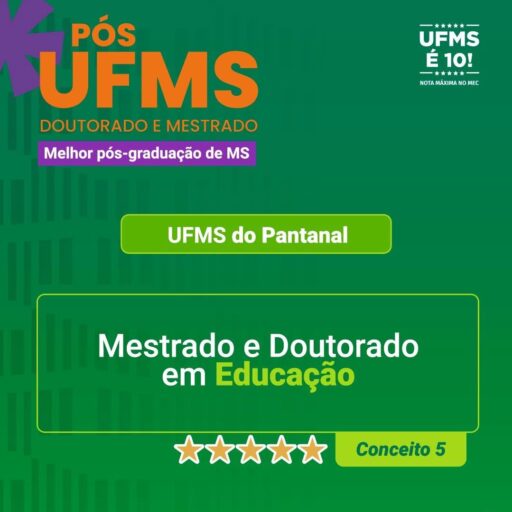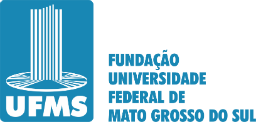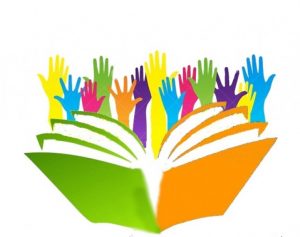ANA CRISTINA AUZIER DE SOUSA – A leitura no final do ciclo de alfabetização na visão de professoras alfabetizadoras da rede municipal de ensino de corumbá-MS
RESUMO
Este estudo faz parte do curso de Mestrado em Educação do Programa de Pós-graduação em Educação (PPGE) da Universidade Federal de Mato Grosso do Sul (UFMS), Câmpus do Pantanal (CPAN), na linha de pesquisa “práticas educativas, formação de professores (as)/educadores(as) em espaços escolares e não escolares”. Integra a pesquisa mais ampla intitulada “alfabetização e letramento em contextos escolares e não escolares”. Toma como objeto a leitura na escola por considerá-la essencial para a formação de leitores, tendo os professores um papel importante na inserção de práticas de leitura, no contexto escolar, aos alunos. Tem como problema de pesquisa a dificuldade de leitura com compreensão de muitos alunos do 3º ano dos Anos Iniciais do Ensino Fundamental e parte das seguintes questões: por que ao final do 3º ano ainda há alunos que não conseguem ler com compreensão? Qual a visão dos professores alfabetizadores sobre essa situação? O que de fato é necessário para que as crianças estejam alfabetizadas, ao final do ciclo de alfabetização? Para buscar respostas a tais questões, a pesquisa teve como objetivo geral compreender a visão de professoras que atuam em turmas do 3º ano dos Anos iniciais do Ensino Fundamental de escolas da rede municipal de Corumbá-MS, sobre o processo de apropriação da leitura com compreensão dos alunos. Os objetivos específicos buscaram: (i) mapear o que as pesquisas têm apontado com relação à apropriação da leitura no final do 3º ano; (ii) identificar a visão das professoras sobre o que é necessário para que o processo de ensino da leitura, com compreensão, seja efetivado; (iii) verificar os fatores atribuídos à dificuldade de leitura e propostas de enfrentamento pelas professoras. A abordagem metodológica, utilizada nesta pesquisa é qualitativa, quanto à sua natureza é de caráter exploratório e descritivo, em relação aos objetivos. Para a produção dos dados, primeiramente foi realizado o levantamento do número de turmas de 3º ano do Ensino Fundamental, em 2020, das escolas da rede municipal de ensino, situadas na cidade de Corumbá-MS, sendo 48 turmas distribuídas em 16 escolas. A partir desses dados, foi elaborado um questionário para ser respondido pelos professores, lotados em 2020, em turmas de 3º ano do Ensino Fundamental, com a finalidade de traçar o perfil e selecionar alguns para serem entrevistados. Dos 29 respondentes foram selecionadas quatro professoras que atenderam aos seguintes critérios do estudo: maior tempo de atuação em turmas de 3º ano e que tiveram alunos com dificuldades de leitura, em 2019. Da análise dos dados constatou-se a necessidade de: (i) mais estudos voltados sobre a leitura em sala de aula; (ii) políticas de formação continuada, voltadas para as estratégias de leitura, de modo a fomentar o gosto/hábito de leitura nos professores e não didatizar a leitura literária; (iii) mais investimentos do poder público no que diz respeito à estrutura material (kits de livros) aos professores e às crianças; (iv) comunicação/diálogo direto e frequente entre professores e pais/responsáveis dos alunos; (v) parceria escola e universidade para apoio junto às crianças, com dificuldades de leitura.
ABSTRACT
This study is part of the Masters in Education course of the Postgraduate Program in Education (PPGE) at the Federal University of Mato Grosso do Sul (UFMS), Pantanal Campus (CPAN), in the line of research “educational practices, training of teachers/educators in school and non-school spaces”. It integrates the broader research entitled “literacy and literacy in school and non-school contexts”. It takes as its object reading at school as it considers it essential for the formation of readers, with teachers playing an important role in introducing students to reading practices in the school context. Its research problem is the difficulty of reading with comprehension for many students in the 3rd year of the Initial Years of Elementary School and starts with the following questions: why at the end of the 3rd year there are still students who cannot read with comprehension? What is the view of literacy teachers on this situation? What is actually needed for children to be literate at the end of the literacy cycle? In order to seek answers to these questions, the research aimed to understand the view of teachers who work in 3rd grade classes of the early years of elementary school in municipal schools in Corumbá-MS, on the process of appropriation of reading with comprehension from the students. The specific objectives sought to: (i) map what research has pointed out regarding the appropriation of reading at the end of the 3rd year; (ii) identify the teachers’ view of what is necessary for the process of teaching reading, with comprehension, to be carried out; (iii) verify the factors attributed to the difficulty of reading and the teachers’ coping proposals. The methodological approach used in this research is qualitative, as its nature is exploratory and descriptive, in relation to the objectives. To produce the data, a survey was first carried out on the number of classes in the 3rd year of elementary school, in 2020, in schools in the municipal education network, located in the city of Corumbá-MS, with 48 classes distributed in 16 schools. Based on these data, a questionnaire was designed to be answered by teachers, allocated in 2020, in 3rd year classes of elementary school, in order to draw a profile and select some to be interviewed. Of the 29 respondents, four teachers were selected who met the following study criteria: longer working in 3rd grade classes and who had students with reading difficulties, in 2019. Data analysis showed the need to: (i) more studies focused on reading in the classroom; (ii) continuing education policies, aimed at reading strategies, in order to promote the taste/habit of reading in teachers and not to make literary reading didactic; (iii) more investments by the government in terms of material structure (book kits) for teachers and children; (iv) direct and frequent communication/dialogue between teachers and parents/guardians of students; (v) school and university partnership to support children with reading difficulties.


